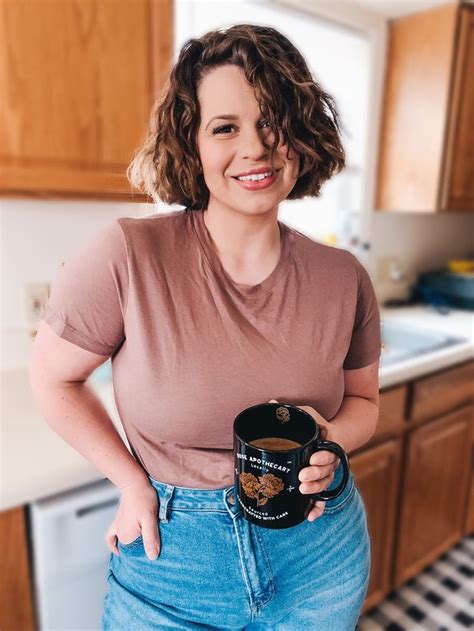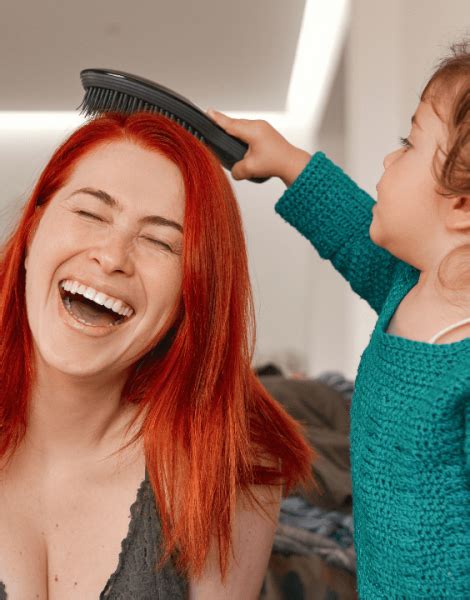
A growing number of mothers are challenging conventional fashion norms, embracing their curves, and redefining style expectations often imposed on them, finding empowerment and confidence in clothing choices deemed “inappropriate” by outdated societal standards.
Curvy Moms Redefine Style, Rejecting Traditional Fashion Constraints
The narrative surrounding maternal fashion is undergoing a significant shift as more women confidently reject restrictive style rules and embrace clothing that celebrates their post-pregnancy bodies. In a culture that often dictates what mothers “should” or “shouldn’t” wear, these women are finding empowerment in defying expectations and showcasing their individuality through fashion. This movement underscores a broader conversation about body positivity, self-acceptance, and challenging entrenched stereotypes related to motherhood.
One such figure leading this charge is lifestyle content creator, Liz Black, who has become an emblem of this rebellious yet confident style. She uses her platform to advocate for body positivity and showcase outfits that defy conventional motherhood fashion, encouraging other women to do the same. Black emphasizes that “curves are sexy, curves are beautiful, and there’s nothing to hide,” a sentiment that resonates with many women navigating the pressures of post-pregnancy body image.
Black’s approach is not merely about flaunting her figure; it’s a calculated act of defiance against the limited and often unflattering options presented to mothers. The conventional narrative frequently pushes moms towards practical, modest, and often uninspiring clothing choices. This movement actively pushes back against this, asserting that mothers have the right to express themselves and feel confident in their bodies, regardless of societal expectations.
“I’ve always been curvy,” Black explains, “and I’ve always loved fashion. So when I became a mom, I wasn’t about to let that change.” Her journey is a testament to maintaining personal style while navigating the challenges of motherhood. She emphasizes that mothers shouldn’t feel pressured to abandon their pre-pregnancy identities or conform to a specific, often outdated, mold.
The societal expectations placed on mothers’ appearances often stem from deeply rooted stereotypes. There’s an implicit (and sometimes explicit) message that motherhood requires a sacrifice of personal style and that a woman’s value is tied to her ability to maintain a pre-pregnancy physique. The current trend challenges the core of this belief, arguing that motherhood should not be synonymous with frumpy attire or a loss of personal expression.
Black’s influence extends beyond personal style choices; she actively encourages her followers to break free from the self-imposed and externally imposed limitations. She advocates for experimenting with different styles, embracing bold colors and patterns, and choosing clothing that makes them feel confident and empowered. This message resonates particularly strongly with women who have felt marginalized or overlooked by the fashion industry due to their body size or motherhood status.
“I think a lot of times, moms are told what they can’t wear,” Black notes, highlighting the restrictive messaging that often dictates maternal fashion. “But I’m here to say, you can wear whatever you want! If it makes you feel good, wear it.” This empowering statement encapsulates the core of the movement: reclaiming personal agency and redefining what it means to be a stylish mother.
This trend aligns with a broader cultural shift towards body positivity and inclusivity. Over the past decade, there has been growing awareness of the need to represent diverse body types and challenge unrealistic beauty standards. The fashion industry has gradually begun to respond, with more brands offering extended size ranges and featuring models of different shapes and sizes. However, the shift is still ongoing, and more progress is needed to fully dismantle the barriers that prevent women of all sizes from accessing stylish and well-fitting clothing.
The movement also emphasizes the importance of self-care and mental well-being. Feeling confident and comfortable in one’s own skin can have a profound impact on overall mental health. By embracing their curves and expressing themselves through fashion, mothers are prioritizing their own well-being and challenging the notion that their needs should always come last.
“It’s about feeling good in your own skin,” Black emphasizes, “and not letting anyone tell you what you can or can’t wear.” This message encourages women to prioritize their own happiness and self-expression, rather than conforming to external pressures.
The impact of this trend extends beyond individual style choices. It has the potential to reshape the broader cultural narrative surrounding motherhood and body image. By challenging stereotypes and promoting inclusivity, these women are paving the way for a more accepting and empowering environment for future generations of mothers. They are showing that motherhood does not require a sacrifice of personal style or a loss of identity, but rather an opportunity to redefine and celebrate the multifaceted nature of womanhood.
This movement doesn’t ignore the practicalities of motherhood. It acknowledges that comfort and functionality are important considerations, particularly for mothers with young children. However, it argues that these considerations should not come at the expense of personal style or self-expression. It encourages women to find clothing that is both practical and stylish, allowing them to feel confident and comfortable while fulfilling their daily responsibilities.
The rise of social media has played a significant role in amplifying this movement. Platforms like Instagram and TikTok have provided a space for mothers to connect with one another, share style tips, and celebrate their bodies. This online community offers a sense of support and validation, helping women to feel less alone in their journey towards self-acceptance.
Influencers like Liz Black are leveraging these platforms to reach a wider audience and inspire change. They are using their voices to challenge outdated stereotypes and promote body positivity, creating a ripple effect that extends far beyond the online world.
The “curvy mom style rebel” trend represents a powerful and important shift in cultural attitudes towards motherhood and body image. It is a reminder that women have the right to express themselves through fashion, regardless of their body size or motherhood status. It is a celebration of individuality, self-acceptance, and the ongoing effort to dismantle restrictive societal norms. As more women embrace this movement, the narrative surrounding maternal fashion will continue to evolve, creating a more inclusive and empowering environment for mothers everywhere.
Challenges and Criticisms
While the “curvy mom style rebel” movement is largely positive, it has also faced criticism. Some argue that it promotes a focus on appearance, which can be seen as superficial or even harmful. Others suggest that it places undue pressure on mothers to conform to a different set of expectations – the expectation to be stylish and body-positive, rather than simply being themselves.
It’s important to acknowledge these criticisms and recognize that body positivity is not a one-size-fits-all concept. What works for one woman may not work for another, and it’s crucial to respect individual choices and preferences. The goal is not to create a new set of rigid rules, but rather to empower women to make informed decisions about their own bodies and their own style.
Additionally, the movement has been criticized for potentially overlooking the challenges faced by mothers who lack the resources or time to focus on fashion. For women who are struggling to make ends meet or juggling multiple responsibilities, the idea of prioritizing style may seem frivolous or unattainable. It’s important to acknowledge these disparities and ensure that the movement remains inclusive and accessible to all mothers, regardless of their socioeconomic status.
The Role of Fashion Brands
Fashion brands play a crucial role in supporting and amplifying the “curvy mom style rebel” movement. By offering extended size ranges, featuring diverse models, and designing clothing that is both stylish and comfortable, brands can help to empower mothers to embrace their curves and express themselves through fashion.
However, many brands still fall short in this regard. Limited size ranges, lack of diversity in advertising, and a continued focus on unrealistic beauty standards remain significant barriers. It’s essential for consumers to hold brands accountable and demand greater inclusivity and representation.
Some brands have already begun to respond to the growing demand for body-positive fashion. They are expanding their size ranges, featuring models of different shapes and sizes, and partnering with influencers who promote body positivity. These efforts are a step in the right direction, but more progress is needed to create a truly inclusive fashion industry.
The Future of Maternal Fashion
The “curvy mom style rebel” movement is paving the way for a more inclusive and empowering future for maternal fashion. As more women challenge stereotypes and demand greater representation, the fashion industry will be forced to adapt.
The future of maternal fashion will likely involve a greater emphasis on comfort, functionality, and personal expression. Clothing will be designed to accommodate the changing bodies of mothers, while still allowing them to feel stylish and confident. Brands will embrace diversity and inclusivity, featuring models of all shapes and sizes in their advertising campaigns.
Ultimately, the goal is to create a fashion landscape where all mothers feel seen, valued, and empowered to express themselves through their clothing. This will require a continued effort to challenge stereotypes, promote body positivity, and demand greater inclusivity from the fashion industry.
The Psychological Impact of Clothing
The clothes we wear have a significant impact on our psychological well-being. Clothing can influence our mood, our confidence, and our sense of self. When we wear clothing that makes us feel good about ourselves, we are more likely to feel confident and empowered.
For mothers, clothing can be particularly important. Motherhood can be a challenging and isolating experience, and clothing can provide a sense of comfort, identity, and self-expression. By embracing their curves and expressing themselves through fashion, mothers can reclaim their sense of self and boost their overall well-being.
The “curvy mom style rebel” movement recognizes the psychological impact of clothing and encourages mothers to prioritize their own needs and desires. It’s a reminder that self-care is not selfish, and that taking the time to choose clothing that makes you feel good is an important part of maintaining overall well-being.
The Importance of Role Models
Role models play a crucial role in shaping our perceptions of beauty and body image. When we see women who look like us embracing their curves and expressing themselves through fashion, it can inspire us to do the same.
Influencers like Liz Black serve as powerful role models for mothers who are struggling with body image or feeling pressured to conform to outdated fashion norms. By sharing their personal stories and showcasing their stylish outfits, these influencers are helping to redefine what it means to be a stylish mother.
The importance of role models cannot be overstated. They provide a sense of hope, inspiration, and validation, helping women to feel less alone in their journey towards self-acceptance.
The Intergenerational Impact
The “curvy mom style rebel” movement has the potential to have a significant intergenerational impact. By challenging stereotypes and promoting body positivity, these women are creating a more accepting and empowering environment for their daughters and granddaughters.
Children learn about body image and beauty standards from a young age. When they see their mothers embracing their curves and expressing themselves through fashion, they are more likely to develop a positive body image themselves.
The movement is helping to break the cycle of negative body image and create a future where women of all shapes and sizes feel confident and empowered to express themselves through fashion.
Conclusion
The “curvy mom style rebel” movement is a powerful and important force for change. It is a celebration of individuality, self-acceptance, and the ongoing effort to dismantle restrictive societal norms. By challenging stereotypes, promoting body positivity, and demanding greater inclusivity from the fashion industry, these women are paving the way for a more accepting and empowering future for maternal fashion. As more mothers embrace this movement, the narrative surrounding maternal fashion will continue to evolve, creating a more inclusive and empowering environment for mothers everywhere. The movement highlights the need for ongoing dialogue, action from fashion brands, and continued support for mothers seeking to express themselves authentically. Ultimately, the “curvy mom style rebel” trend is about empowering women to live their lives on their own terms, confident in their bodies and proud of their personal style.
Frequently Asked Questions (FAQs)
-
What exactly is the “curvy mom style rebel” movement? The “curvy mom style rebel” movement is a growing trend where mothers are actively rejecting traditional fashion rules and expectations often imposed on them. It’s about embracing their curves, feeling confident in their bodies, and expressing their individuality through clothing choices that defy outdated societal standards regarding what mothers “should” or “shouldn’t” wear. This includes wearing items that are considered too “revealing” or “unflattering” for moms according to conventional norms, and instead choosing items that make them feel good about themselves. The movement emphasizes body positivity, self-acceptance, and challenging stereotypes associated with motherhood and appearance.
-
Why is this movement considered important? This movement is important for several reasons. First, it challenges deeply rooted stereotypes that dictate how mothers should look and dress, promoting a more inclusive and realistic representation of motherhood. Second, it empowers women to prioritize their self-expression and well-being, rather than conforming to external pressures. Feeling good about one’s appearance can have a positive impact on mental health and overall confidence. Third, it sets a positive example for future generations, teaching children to embrace body diversity and challenge limiting societal norms. Fourth, it encourages the fashion industry to become more inclusive by offering extended size ranges and featuring diverse models in advertising campaigns. Finally, it gives women a platform to celebrate their multifaceted identities beyond just being mothers.
-
What are some common criticisms of the “curvy mom style rebel” movement? While generally positive, the movement faces criticisms. Some argue it places undue emphasis on appearance, potentially promoting superficiality or creating a new set of expectations. Others suggest that focusing on style might be inaccessible or impractical for mothers with limited resources or time. There’s also the risk that it might inadvertently pressure mothers to conform to a different kind of ideal – the ideal of being a stylish and body-positive mom, rather than simply being themselves. It’s important to remember that body positivity is not a one-size-fits-all concept, and individual choices should be respected.
-
How is social media influencing this movement? Social media platforms like Instagram and TikTok have played a pivotal role in amplifying the “curvy mom style rebel” movement. These platforms provide a space for mothers to connect, share style tips, and find support and validation. Influencers like Liz Black use these platforms to reach a wider audience, challenge outdated stereotypes, and promote body positivity. Social media allows women to see diverse body types and styles, fostering a sense of community and helping them feel less alone in their journey towards self-acceptance. It also facilitates direct communication with brands and provides feedback on inclusivity and representation.
-
What can fashion brands do to support this movement? Fashion brands can play a crucial role in supporting the “curvy mom style rebel” movement by taking concrete actions. This includes: 1) Offering extended size ranges to cater to a wider range of body types. 2) Featuring diverse models, including curvy women and mothers, in their advertising campaigns. 3) Designing clothing that is both stylish and comfortable, accommodating the practical needs of mothers. 4) Actively partnering with influencers who promote body positivity and challenge stereotypes. 5) Listening to customer feedback and incorporating it into their design and marketing strategies. 6) Avoiding the use of overly retouched images that promote unrealistic beauty standards. By taking these steps, brands can help to empower mothers to embrace their curves and express themselves through fashion, contributing to a more inclusive and empowering fashion industry.
-
How does clothing impact a mother’s psychological well-being? Clothing has a significant impact on psychological well-being, particularly for mothers. Motherhood can be challenging and isolating, and clothing provides a source of comfort, identity, and self-expression. Feeling confident and comfortable in one’s clothing can boost self-esteem, improve mood, and enhance overall psychological health. The “curvy mom style rebel” movement recognizes this and encourages mothers to prioritize their own needs and desires, viewing self-care through clothing choices as essential rather than selfish. Choosing clothes that reflect personal style helps reclaim a sense of self, reinforcing identity beyond the maternal role and fostering a positive self-image.
-
What is the long-term vision of the “curvy mom style rebel” movement? The long-term vision is a complete overhaul of societal attitudes and expectations surrounding motherhood and body image. It envisions a future where all women, regardless of size or motherhood status, feel empowered to express themselves authentically through fashion without fear of judgment or criticism. It seeks to dismantle restrictive stereotypes and promote a culture of inclusivity and body positivity. This includes a fashion industry that caters to diverse body types and a media landscape that celebrates realistic and diverse portrayals of mothers. Ultimately, the goal is to create a world where women feel confident, valued, and respected for who they are, both inside and out. It is also hoped that younger generations will grow up with healthier attitudes toward body image and self-acceptance.
-
How can individual women participate in this movement, even if they aren’t fashion-savvy? Individual women can participate in the “curvy mom style rebel” movement in various ways, regardless of their fashion expertise. Firstly, prioritize comfort and confidence: choose clothes that make you feel good in your own skin, regardless of current trends. Secondly, experiment with styles: try new colors, patterns, and silhouettes to discover what you enjoy wearing. Thirdly, challenge self-limiting beliefs: question any internal voices telling you what you “should” or “shouldn’t” wear. Fourthly, support inclusive brands: shop from companies that offer extended size ranges and feature diverse models. Fifthly, engage in online communities: connect with other mothers on social media who are embracing body positivity and sharing style tips. Sixthly, be a role model: showcase your personal style with confidence, even if it’s simple and casual. Finally, remember that participation is about self-acceptance and self-expression, not about conforming to a specific style or trend.
-
Does this movement have a broader societal impact beyond fashion? Yes, the “curvy mom style rebel” movement has a broader societal impact that extends far beyond fashion. By challenging stereotypes and promoting body positivity, it contributes to a more inclusive and accepting culture overall. It encourages critical thinking about beauty standards and the ways in which society often marginalizes certain groups of people. It empowers individuals to embrace their unique qualities and reject limiting labels. It fosters a greater sense of self-acceptance and self-love, which can have a positive impact on mental health and overall well-being. It also creates a more supportive environment for future generations, teaching children to value diversity and challenge discrimination. Ultimately, the movement contributes to a more equitable and compassionate society where everyone feels valued and respected for who they are.
-
How does this movement address the intersectionality of motherhood and body image (e.g., race, socioeconomic status, disability)? The “curvy mom style rebel” movement, at its best, acknowledges the intersectionality of motherhood and body image. This means recognizing that experiences of body image and fashion choices are shaped by various factors, including race, ethnicity, socioeconomic status, disability, sexual orientation, and more. An intersectional approach involves:
- Representation: Promoting diverse representation of mothers in terms of race, ethnicity, body size, ability, and socioeconomic background within the movement itself and in media portrayals.
- Accessibility: Addressing the economic barriers to fashion by advocating for affordable and inclusive clothing options.
- Challenging Stereotypes: Actively challenging stereotypes related to beauty and motherhood that disproportionately affect marginalized groups.
- Amplifying Voices: Providing platforms for mothers from diverse backgrounds to share their unique experiences and perspectives.
- Promoting Inclusivity: Ensuring that conversations about body positivity and self-expression are inclusive of all mothers, regardless of their circumstances. By addressing these intersecting factors, the movement can become more truly empowering and relevant to all mothers.









